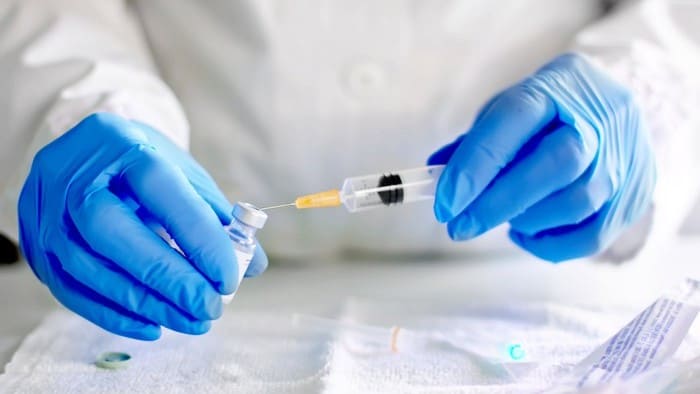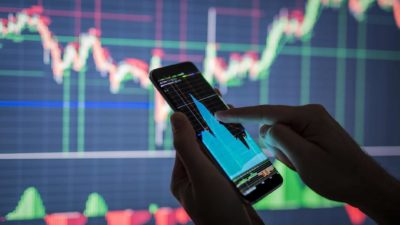CSL Limited (ASX: CSL) shareholders have been tearing their hair out over the past 12 months.
The stock price has plummeted 20% during a time the rest of the market has climbed onwards and upwards from the depths of the COVID-19 crash.
It's been a rude shock for a stock that grew spectacularly for 25 years before the pandemic.
"It took the better part of the past 2.5 decades, but Australian investors eventually warmed to Australia's largest and most successful biotech company," FNArena editor Rudi Filapek-Vandyck said to his subscribers.
"Just when it seemed nothing could ever possibly go wrong for Australia's number one business success story, it somehow did."
Its life as an ASX-listed company has been so charmed that in just a quarter of a century it grew to the biggest market capitalisation in the nation, overtaking Commonwealth Bank of Australia (ASX: CBA) last year.
So what went wrong for this former market darling?
It's directly involved in manufacturing coronavirus vaccines for Australia, so surely business is pumping?
Filapek-Vandyck offered 6 explanations as to why CSL could be struggling.
CSL is so popular there are no more buyers
Filapek-Vandyck recalled that for a long time retail investors ignored CSL.
"No yield. A high valuation. A complex science and investment-based business model. Predominantly active in overseas markets," he said.
"Who in their right mind would possibly invest in it?"
Then after decades of outperformance, public sentiment morphed around 2016 to 2017.
"Conversation shifted from 'expensive' to 'you pay up for quality'; and more and more investors, both professional and retail, joined the fan club," he said.
"What helped growing enthusiasm was that CSL shares kept on keeping on. First past $100, then $200, and even $300 was not a bridge too far."
By 2019, it had made it as a "must-own" stock among retail shareholders.
"What happens when everyone is on board with a guaranteed good thing? It means there are no logical buyers left when money starts shifting elsewhere," said Filapek-Vandyck.
And that's exactly what happened when the coronavirus pandemic arrived.
"That money on the sideline last year was very much looking elsewhere because the opportunities to be had were of the once-in-a-lifetime kind, leaving early safe havens and outperformers like CSL hanging high and dry," Filapek-Vandyck said.
"There most definitely is a danger with having convinced the last of the sceptics, as share prices need a marginal buyer to provide natural support."
Other businesses have relatively better growth or dividends
Since the COVID-19 crash last year, CSL has offered neither a spectacular dividend yield nor potential for explosive growth — compared to other ASX businesses.
Filapek-Vandyck cited how "low-quality cyclicals, small caps and cash gobbling business models de-rated by -50% and more" during the 2020 crash.
"But now that dynamic has changed and those prior castaways are offering potential growth of 50% and more, plus in some instances the return of shareholder dividends," he said.
"By now the over-ruling question has become: why holding on to a company that only offers little growth, with no yield, while I can get both in spades elsewhere? Many investors don't spend five seconds thinking about it."
Australian dollar's rise and fall, and rise
As essentially an export business, CSL's fortunes are inversely pegged to the value of the Australian dollar.
Nine years ago, the Aussie ballooned to US$1.13 on the back of the GFC recovery efforts.
Accordingly, CSL's stock price started climbing upwards once that peak passed.
"Today's situation is not as extreme, but important nevertheless. AUD has quickly risen from below [US$]0.60 to near 0.80. The move since the start of 2021 has been from circa 0.70 to, say, 0.77," said Filapek-Vandyck.
"At its lowest point two weeks ago, the CSL share price was down in excess of -13% when measured from the start of the calendar year."
Neither growth nor value
CSL seems to have been caught on the wrong side of market sentiment both last year and this year.
Last year, it wasn't 'growth enough' when high-flying tech businesses rocketed up after the March crash.
Then a sometimes violent rotation to value started at the end of 2021.
"What really got the momentum switch into acceleration was the advent of ready-to-use vaccines plus rising yields on government bonds the world around. Before long, the global narrative morphed into 'inflation is coming'," said Filapek-Vandyck.
"They reduce exposure to technology and highly-priced quality and growth stocks. Again, CSL finds itself on the wrong side of market momentum."
International plasma business is on hold
While CSL operates the world's second largest virus vaccine business, its biggest money-spinner is still idle.
Filapek-Vandyck explained that in the pre-COVID world, CSL was running "the largest and most efficient global network" of plasma collection centres.
"Just like Superman is weakened by Kryptonite, the COVID-19 virus spreading throughout the USA still is preventing donors from visiting plasma collection centres — and this is weighing down the global plasma industry, of which CSL remains the most efficient operator."
The current suppression of demand won't last forever, but investors seem to be waiting to see a firm turnaround.
"And so we wait. For the Biden administration to successfully roll out vaccines. For life without lockdowns. For industry collection data to signal the worst is in the past, and growth in plasma collection is returning."
Competition fears
Sales of immunoglobulin is a "bread and butter" business for CSL, but there is a new rival coming.
"US-based biotech Argenx SE (EBR: ARGX) is currently trialling a FcRn drug for Chronic Inflammatory Demyelinating Polyneuropathy (CIDP), and showing great promise," Filapek-Vandyck said.
"CIDP is a rare condition with only 40,000 patients being treated annually, but it does account for circa US$3bn of the US$12.8bn of global annual immunoglobulin sales."
But the prospect of this is years away, even if everything goes right for Argenx and the FcRn industry.
Credit Suisse is one observer that reckons the market has over-panicked about the potential competitive threat.
"On Credit Suisse's assessment there is no shortage in demand, hence immunoglobulin lost to FcRn will simply find a customer elsewhere," said Filapek-Vandyck.
CSL shares were upgraded to "outperform" status last month by Credit Suisse, with a 12-month target of $315. It's currently trading at $264.91.









